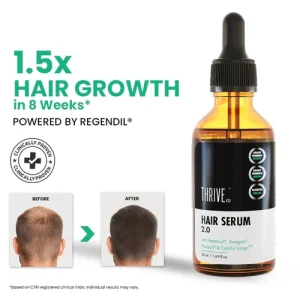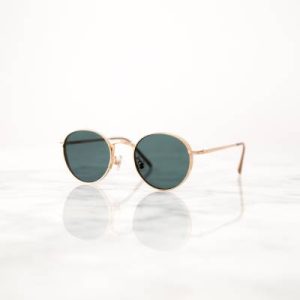The beauty industry is witnessing a seismic shift in how products are developed, marketed, and consumed. Fueled by advancements in technology and an increasing emphasis on individuality, personalization has emerged as the new gold standard. The days of one-size-fits-all solutions are rapidly fading, as consumers demand products that cater to their unique needs and preferences.
The Rise of Personalization in Beauty
According to a report by Forbes, spending on personalized beauty products is expected to reach $3 billion by 2025. This increase can be attributed to a combination of factors, including the growing influence of social media, a more educated consumer base, and the availability of data analytics tools that enable brands to offer customized solutions.
Gone are the days when beauty was defined by standard shades and universally marketed products. Today, consumers increasingly see beauty as an expression of identity. They are motivated by the desire for authenticity and are keen to find products that enhance their individuality rather than conform to societal norms.
Technology’s Role in Shaping Personalized Beauty
Technology plays a pivotal role in the rise of personalized beauty. With the integration of Artificial Intelligence (AI) and data-driven solutions, brands are now able to offer tailored recommendations ranging from skincare routines to cosmetic shades. For instance, Sephora has implemented a mobile app feature that uses augmented reality to allow customers to virtually try on makeup products. This not only elevates the shopping experience but also ensures that consumers make informed choices that suit their unique features.
Moreover, data analysis tools enable companies to capture consumer behavior and preferences. Brands can now analyze everything from purchase history to social media interactions to better understand what their customers desire. This level of insight allows for hyper-targeted marketing, ensuring that consumers receive personalized product recommendations straight to their devices.
Custom Formulations: The Ultimate Personal Touch
While many brands are adopting personalization through recommendation algorithms, others are pushing the envelope further by offering custom formulations. Function of Beauty, for instance, provides shampoo and conditioner customized based on individual hair type, goals, and preferences. Customers can select everything from fragrance to the specific ingredients included in their products.
This growing trend also extends beyond hair care; skin care brands like Curology are also leveraging personalized formulas. Customers can fill out an online questionnaire about their skin concerns, upload photos, and then receive a prescription for a tailored skincare regimen. This allows consumers to tackle specific challenges, whether it’s acne, dryness, or aging.
Challenges and Ethical Considerations
Despite the excitement surrounding personalized beauty products, challenges persist. The most pressing concern relates to data privacy. As brands collect more data to facilitate customization, consumers worry about how their information is used and stored. Implementing robust security measures while building trust with consumers will be essential for brands venturing into this territory.
Moreover, there’s the matter of inclusivity. Personalization should not just cater to the most common beauty standards; it needs to embrace all skin tones, hair types, and identities. Brands are being called on to ensure that their product offerings reflect the diversity of their consumer base while being mindful of cultural nuances.
The Future of Retail Experience
The shift toward personalization is not limited to product formulation but extends to the entire retail experience. Brands like Glossier and Fenty Beauty have effectively utilized social media to build communities around their products, encouraging feedback and engagement. This interactive model allows consumers to feel more connected and involved in the brand’s evolution.
As augmented reality and virtual experiences become more commonplace, the way consumers shop for beauty products will continue to evolve. Imagine a future where consumers can walk into a store and receive personalized recommendations in real-time based on facial recognition technology. This level of interactivity could redefine customer service, turning a one-time purchase into a long-term relationship.
Conclusion: A New Era of Beauty
The future of beauty is undoubtedly leaning towards personalization, departing from traditional norms and embracing diversity and individuality. As technology advances and consumer expectations evolve, brands that prioritize customization will not only capture market share but also foster deeper connections with their customers.
In a world where the beauty landscape is continually changing, the quest for tailored solutions is more than just a trend—it’s a movement towards a more inclusive and expressive way of defining beauty. As we progress into this new era, the question remains: how will your beauty routine adapt to meet your unique needs?
Related Products
-
Sale!
Product 2025-10-01
Cosmetic Products€14,90Original price was: €24,28.€18,18Current price is: €18,18.
€18,18 incl. VAT -
Top Cosmeric Product 2024 | Best Skincare & Beauty Solutions
Body Care€10,00€12,20
€12,20 incl. VAT -
Sale!
Soluta.
Accessories€200,00Original price was: €244,00.€244,00Current price is: €244,00.
€244,00 incl. VAT





